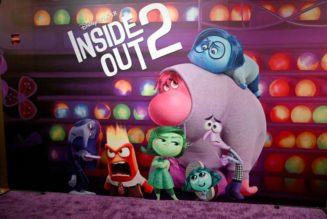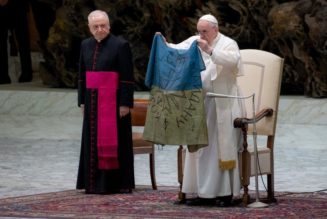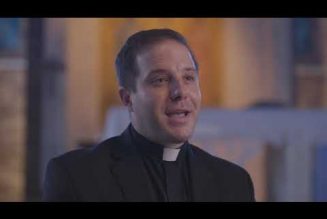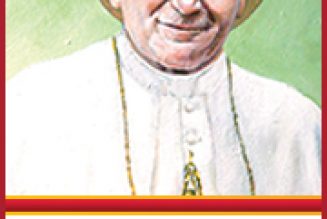Last week, another leader in the Church has suggested we should change our teaching on homosexuality. However, “should” implies there that the one doing the action is able. However, the Church has no power to change her teaching on homosexual relations.
Let’s look at what the Cardinal said, look at the Catechism, look at magisterial teaching, and note what a change would imply.
Card. Jean-Claude Hollerich on Homosexuality
Recently KNA, a German Catholic news source, interviewed Card. Hollerich. He stated, “I believe that the sociological-scientific foundation of this teaching is no longer correct.” But, where did he get that the foundation of the immorality of sexual acts between persons of the same sex was sociological-scientific? The moral issue goes much deeper than mere sociology or whatever aspect of science he refers to.
Hollerich is far from the first bishop to propose this. I’ve written about Bishop Franz-Josef Overbeck of Essen in 2019. In 2021, CNA interviewed me about Bishop Peter Kohlgraf of Mainz.
The Catechism on Homosexuality
I think it is important to note that the Catechism strongly distinguishes homosexual individuals and homosexual acts. We are all tempted to commit sinful acts, and each is tempted more by certain types of acts than others. Temptation is not sin. Having a specific temptation more than another one is not sinful.
The Catechism has three paragraphs on homosexuality: 2357-2359.
The first paragraph notes homosexual acts are immoral. “Basing itself on Sacred Scripture, which presents homosexual acts as acts of grave depravity, tradition has always declared that ‘homosexual acts are intrinsically disordered.’ They are contrary to the natural law. They close the sexual act to the gift of life. They do not proceed from a genuine affective and sexual complementarity. Under no circumstances can they be approved.”
The second paragraph notes that we should respect persons with such tendencies. “They must be accepted with respect, compassion, and sensitivity. Every sign of unjust discrimination in their regard should be avoided.”
The Third calls them to chastity. “Homosexual persons are called to chastity…. By prayer and sacramental grace, they can and should gradually and resolutely approach Christian perfection.”
Magisterial Teachings on Homosexuality
The Church has been consistent in her condemnation of homosexual acts. I cited nine different ones in this prior piece in the National Catholic Register if you want to go in-depth. Here’s the conclusion:
For 2,000 years, the Church has not wavered in her teaching on the immorality of homosexual acts. There has not been a definition in the extraordinary magisterium but the ordinary universal magisterium can be infallible if taught universally with regard to time and place. The immorality of homosexual acts is an infallible teaching of the Church in the ordinary universal magisterium. Thus, the Church cannot change this teaching no matter how much certain priests might wish it changed.
Basis of Church Teaching
Despite Hollerich’s claim of a sociological-scientific foundation, that does not appear to be the basis the Church uses. She has based herself on Scripture, on tradition, on a deeper understanding of marriage and human sexuality. I think this can be best understood today by starting with the nature of marriage as one man and one woman, forever, for the sake of children and their mutual benefit. All sex outside of a marital relationship is gravely sinful.
Many parts of sociology and science support this, but we can’t reduce morality to them. Science can tell us if a sexual act is of the type that might produce children or not, but it cannot tell us if it is moral or not. Parts of sociology can help in understanding how we operate in society. But we can’t reduce sociology to a fancy academic version of public opinion. Ethics can gain from information gained from science and sociology, but we can’t reduce ethics to science and/or sociology as neither has ethics as its proper object.
Implications from a Change
MInority Report on BIrth Control
Back in 1966, Fr. John Ford, SJ and others who defended the Church’s teaching on birth control released what became known as the minority report of Paul VI’s birth control commission.
In it they note logical consequences if the Church were to approve birth control:
Once one has set aside this traditional principle, one would also be setting aside a fundamental criterion, up until the present time unshaken in its application to many acts which have always been considered by the Church to be serious sins against chastity: The case of extra-marital sexual relationships of those whose living together… The case of sexual acts in marriage, for example, oral and anal copulation… the door is opened easily to the licitness of masturbation… direct sterilization would be permitted as well.
We can see how this has happened. Many other Churches and society as a whole had such effects once they said contraception was acceptable.
This report goes further:
many theologians, who maintain that contraception is not intrinsically evil, seem to come to this conclusion from a more general principle: that, namely, which denies all absolute intrinsic morality to external human acts, in such a way that there is no human act which is so intrinsically evil that it cannot be justified because of a higher good of man.
This report indicates accepting homosexual acts as moral might be a consequence of accepting birth control as moral.
Implications Today
I think today we have similar issues with homosexuality. If the Church changed her teaching here, she would need to base it on something. I see no basis for the change that would not also destroy the basis for other sexual morality. I can’t see an argument that allows homosexual acts but does not also allow fornication, marriages with more than two people, masturbation, “open” marriages, etc.
This may even go further. Leaving the realm of sexual acts, changing church teaching in this area would have dramatic negative ripple effects on theology. As Stephen White noted:
Conclusion
Card. Jean-Claude Hollerich is making a suggestion that is impossible. He is suggesting the Church change her position on homosexual acts. But this is a consistent teaching from Scripture and tradition so she has no power to change it. Furthermore, were the Church to change this teaching, any basis would also destroy much more in Catholic ethics. The Church must stand firm in her teaching.
Join Our Telegram Group : Salvation & Prosperity










